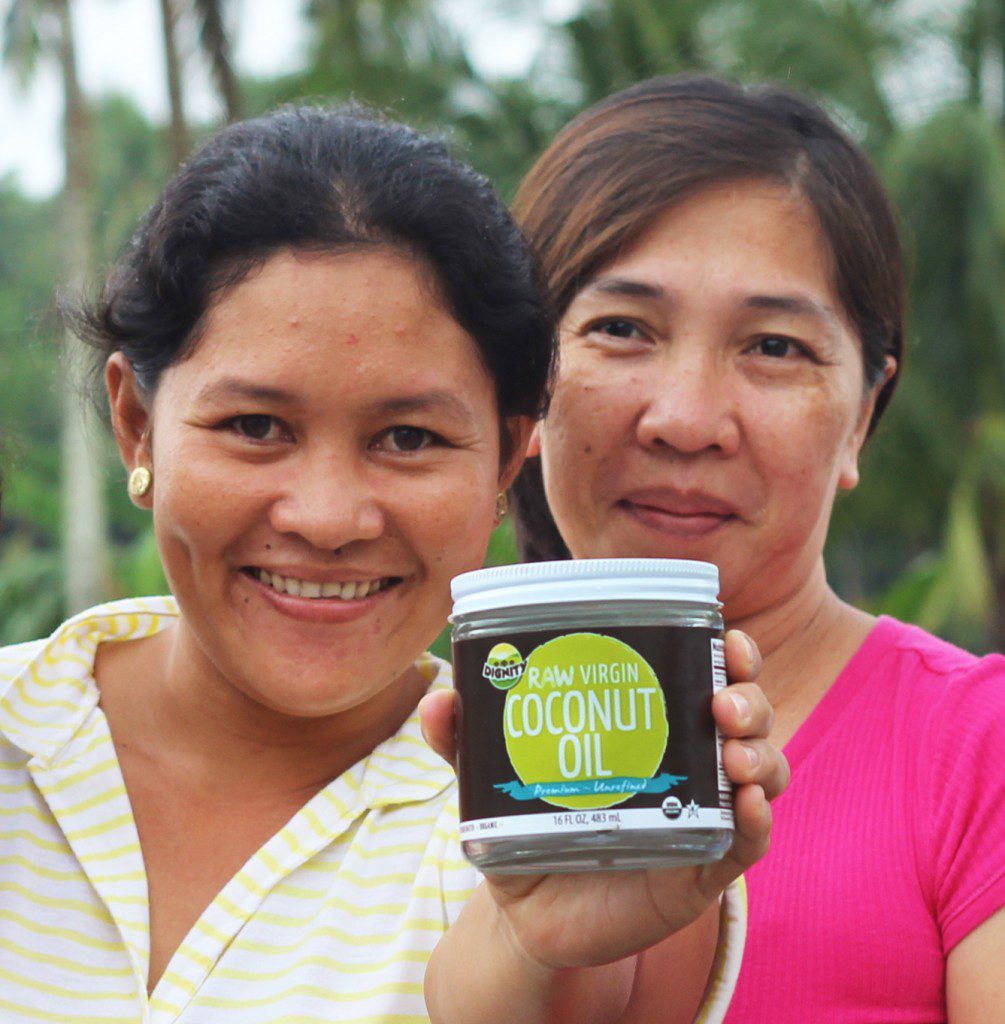
“We’re fighting this multi-billion dollar evil with a peashooter,” Stephen told Don as they wandered around the exhibition hall at an anti-human trafficking convention. At every booth they were encountering stories of abuse and human suffering. There were also stories of rescue and restoration. However, the sheer scale of global slavery seemed to dwarf the efforts of those at the front-lines fighting against it. Most organisations working with trafficked communities can only provide jobs for 5, 10, 20 or so people. This is great and essential work; giving meaningful work and a stable livelihood is central to people getting out and staying out of slavery. Yet the need for stable jobs far surpasses the supply. Don and Stephen came away with a burning question: How can we employ a growing number of people vulnerable to, or rescued from, human trafficking?
A year later in 2009 Stephen Freed and Don Byker left their long-held positions and set out to research business opportunities. They realised that if they were really going to tackle the underground slavery industry, they would need multiple, substantially-sized businesses that could employ hundreds or thousands of people. As they researched they found, as economists have discovered, that the key to solving poverty and bringing widespread economic development to communities is a growing number of SME-sized businesses.
Coconuts, coconuts!
Don Byker, former Harvard professor, management consultant at Bain and Company, and business owner, had been helping to support an orphanage and schools in rural Philippines since 1973. As he and Stephen were exploring business ideas, a local NGO leader said, “Our students are doing well in high school, but what happens after graduation? There are no jobs in our community. Our graduates have to leave their families and go to the cities or overseas to get work.” At best families are divided and brain-drain continues, losing those most equipped to improve the community. At worst their search for better jobs makes them vulnerable to human trafficking. The rural area where they went to school was isolated, hours from the nearest city down a barely passable road. The economy of the area consisted mainly of subsistence farming of coconuts, fish and rice, with unemployment near 80%. The message from the local leader came back clearly: “Give us a chance to compete in the global marketplace. Start a business!”
Instead of coming in with western ideas and mandates, Don and Stephen asked the community what kind of business they could create there. Their question was, “What do you have?” The rather surprising answer at the time was: coconuts!
As the business team got into some in-depth research, and seriously started using different coconut products themselves, they that coconut oil did indeed have many proven health benefits. At the time it was mainly being used by health enthusiasts, but there was already a growing market. This was the beginning of Dignity Coconuts.
Unearthing Dignity
Erik Olson, VP at Dignity Coconuts shares, “The name Dignity was chosen to counter the sad reality that most approaches to development unintentionally erode a poor person’s dignity. In order to help people rise out of poverty with dignity, we must create opportunity for meaningful work. Businesses done right have great potential due to the ability to create significant jobs.”
As they launched into product research, Don and Stephen found most companies were using one or two parts of the coconut, leaving piles of waste behind. The Dignity team sought to develop ways of processing the coconut so none of it is wasted, adding more value to this crop typically grown by the poor. Although the eventual goal is to use the whole coconut, the team knew they couldn’t launch all their planned products at the same time, they needed to focus. That has been a difficult tension for them and it’s taken discipline to focus on the R&D needed to get their first products to market, starting with coconut oil and ground shell powder.
A Plant in the Community
Another early decision in Dignity’s development was where to locate the coconut processing plant. The team wrestled with whether they should build the plant near the developed city or in the rural villages. The Bicol region where they are working is one of the poorest in all of the Philippines, and there are relatively few industries and coconut processing facilities there to begin with. On the other hand, all the existing coconut companies are established near the cities that offer developed infrastructure, access to construction materials, and easier export logistics. Their plants send trucks hours away to collect the crop from rural areas reinforcing the disconnect between the factory and the farmers.
The Dignity team knew that in order to make significant impact and create jobs in the rural community, they would have to build their plant where the people were, in the heart of the community itself. Indeed, this brought many logistical challenges and it took a full two years to build the plant. The team decided to create a smaller, more nimble plant, but this still required four buildings. It was a constant challenge to get all the materials to a place that had no major construction supplies.
Coconut Oil with a Difference
The Dignity team chose coconut oil as its first of six products because of the rapidly growing market and long shelf life. Knowing they couldn’t compete on price with big name brands, they went for a high-quality product. They aim to build a brand loyalty with people who can, quite literally, taste the difference. Dignity’s product, Raw Virgin Coconut Oil, is extremely healthy. Normally used in cooking and food preparation, it is also pure enough to be used directly on the skin. One of their unique selling points is that the centrifuge method produces oil which is considered a raw food, preserving and passing on the health benefits found in the coconut.
Dignity has already seen transformation, starting with the farmers. In the past farmers have sold their dried coconut meat to traders. This closed group dictates the price, most often with no way to check prices. The farmers were trapped in a cycle of poverty with no options. Instead Dignity invites the farmers to come to their Community Transformation Plant (CTP) for training and has helped them get organic certification. Dignity Coconuts is changing the model for how to do business in a way that can break cycles of poverty.
On the other end, the consumers benefit from the traceability of the oil and the direct connection with the farmers and the plant staff. Dignity currently employs about 80 employees, with plans for 150 at two shifts. Workers sign each jar coming off the line, creating a personal touch on the finished product. The idea that customers can make a real difference for real people by choosing this product is another of the key marketing messages for Dignity. They share extensively and openly on their website about the community impact and individual empowerment the business is facilitating. They encourage their customers by showing their purchases can improve lives and disrupt systems of oppression. Dignity’s is not just another run of the mill coconut oil!
The Real Business of Transformation
Locating the plant in this very poor, very rural coastal region has brought noticeable change in other ways. A new level of energy and hope has emerged in the community. Employees are starting to talk about sending their kids to college. Previously that seemed too far fetched, but now with a stable family income, it has become a possibility. The plant itself has brought infrastructure development to the area, better transportation links, introduced more food choices into the area and has resulted in other businesses popping up locally. More people now have mobile phones and a telecom company put a tower in the area. People can communicate better and access services like mobile banking, which empowers them with more choices.
As they rub shoulders with their employees and people in the community, the Dignity team hope they are able to demonstrate the love of Christ through their lives. There has already been tangible evidence of transformation: stable jobs have been created, community issues are being tackled, local churches are working together in greater unity, farmers have been empowered, the local economy is growing – there is a sense of hope. The real business of Dignity Coconuts isn’t processing coconuts, but bringing production into communities where it can have a holistic, transforming impact: social, environmental, economic, physical, spiritual, and emotional.
Read the full Dignity Coconuts Story on The BAM Review blog – subscribe to our twice-monthly email to get fresh Business as Mission articles and stories direct to your inbox.












